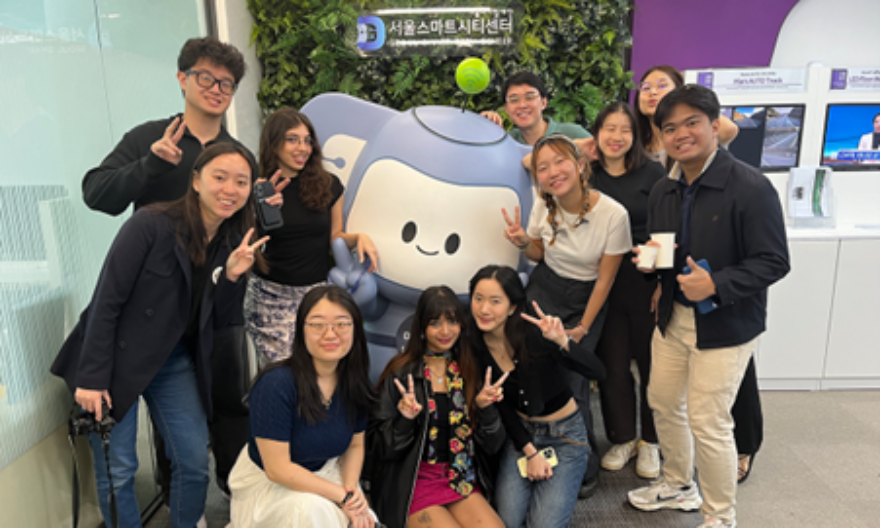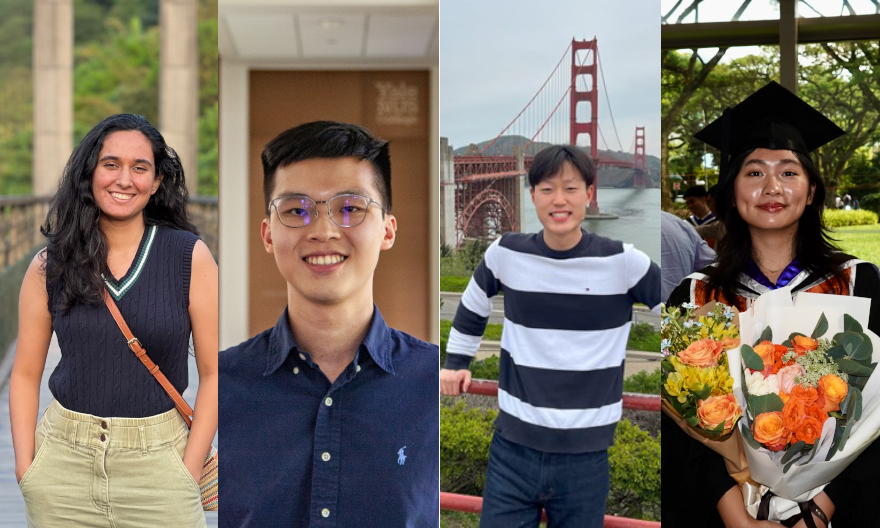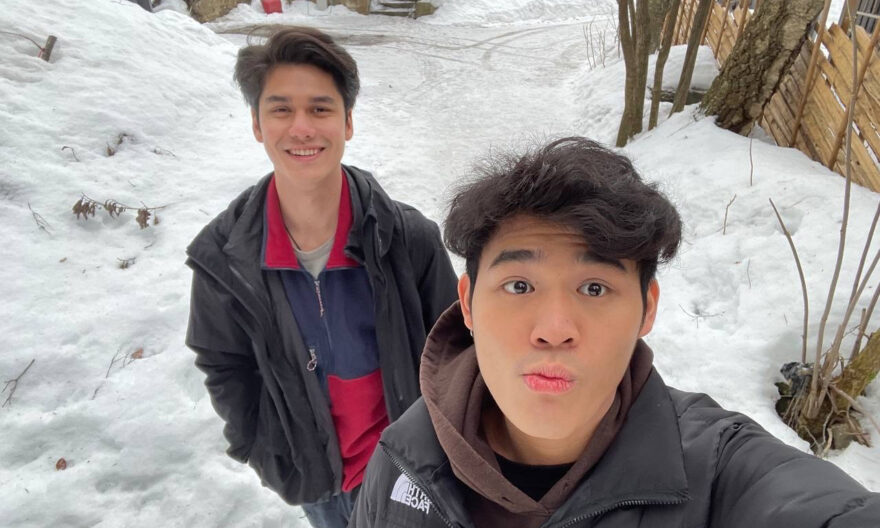Yale-NUS students pursue research projects over the semester break
As students transition from high school to university, the idea of grappling with tonnes of data and jargon in academic research may appear daunting. To expose students to university-level research, the Summer Research Programme (SRP) at Yale-NUS College provides students (who have no prior research experience) with the opportunity to delve deeper into a specialised field while receiving close mentorship from a faculty member.
For Nicole Hu (Class of 2023), the SRP was a gateway experience that opened her eyes to what Economics research entailed. She worked closely with Assistant Professor of Social Sciences (Economics) Lei Yu-Hsiang to study the environmental consequences of economic development, and conversely, the environmental factors that pose threats to economic development.
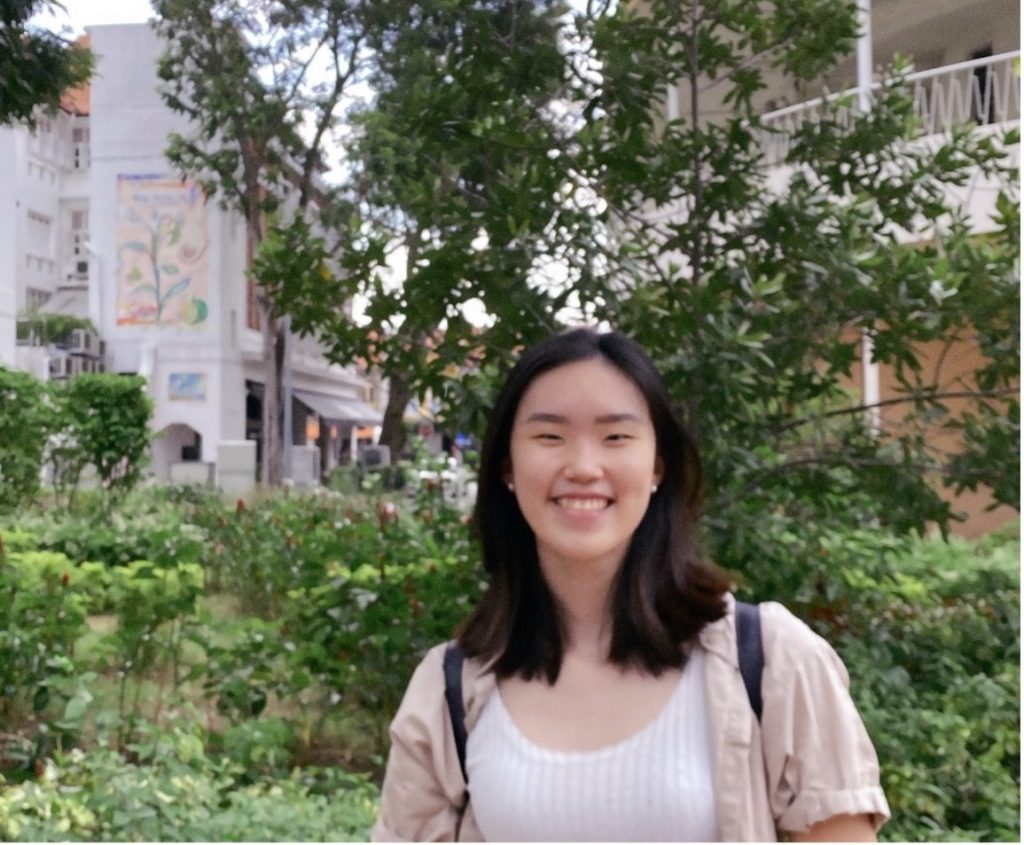 Nicole pursued a research project on Development Economics over the summer break. Image provided by Nicole.
Nicole pursued a research project on Development Economics over the summer break. Image provided by Nicole.
In her day-to-day role, Nicole consolidated and processed environmental data from sources such as satellite data located in the NASA server, and adapted the data to analyse pollution in India. The project built on Asst Prof Lei’s supervised capstone project by Megha Joshi (Class of 2021).
Having previously studied Developmental Economics and Econometrics during the semester, Nicole appreciated the experience of putting the theories she had learnt into practice. She shared, “All the theories I learnt became concretised, and I am learning first-hand what these classes didn’t teach, which is how to get these data in the first place and process them to usable forms.”
Nevertheless, at the beginning of her research project, Nicole met an unexpected hurdle: Doing empirical research was more challenging than reading within the context of a classroom, where data sets are readily prepared.
Reflecting on the challenges, she shared that her faculty advisor’s support and guidance inspired her to keep going. “Asst Prof Lei entrusted me with important tasks and provided me with guidance and mentorship. Having such patience accorded to me inspires in me confidence and a growth mindset – I was able to get a head start proactively learning essential skills and reading widely beyond the curriculum,” she explained.
Additionally, to better hone her skills, she participated in the research workshops organised by the College’s Centre for International & Professional Experience (CIPE), which covered skills like abstract writing, effective communication, and time management.
While Nicole delved into the social sciences, another student, Dou Jingzhi (Class of 2023) embarked on a humanities research project.
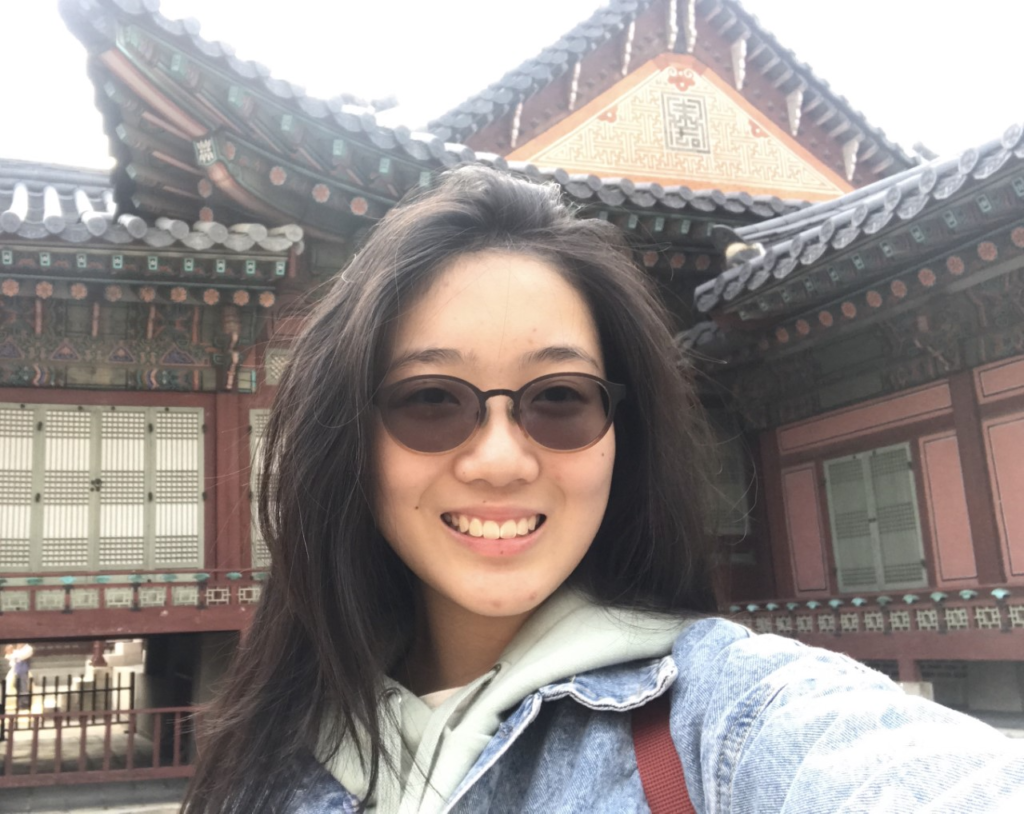 Jingzhi studied Ling Shu Hua, a Chinese modernist writer during the summer. Image provided by Jingzhi.
Jingzhi studied Ling Shu Hua, a Chinese modernist writer during the summer. Image provided by Jingzhi.
Jingzhi worked closely with Assistant Professor of Humanities (Writing, Literature) Heidi Stalla to study Ling Shu Hua, a Chinese modernist writer, and the individuals who inscribed on her friendship scroll between the 1920s to the 1950s. Jingzhi was part of Asst Prof Stalla’s team that was working on the translation and research on the scroll and life of Ling Shu Hua as well as a documentary on the project.
For her project, Jingzhi was tasked with translating Classical Chinese archival materials into English. Initially, the language barrier made understanding the nuances of the original work challenging. Nonetheless, she shared that the dedication of her advisor and teammates were beneficial in helping her persevere.
“The inaccessibility of materials across linguistic and cultural barriers is something that cross-cultural research typically faces. Regardless, Asst Prof Stalla and my peers have been super supportive in helping me to explain certain cultural references,” she said.
As an Anthropology major, Jingzhi felt that the soft skills she picked up would help her in her future academic endeavours. “As I read and write ethnographies, I hope to translate the personal connection I felt to this summer research project into greater sensitivity and respect for the people and their lived experiences that we discuss in Anthropology,” she added.
Meanwhile, in the domain of the sciences, Marcellinus Jerricho (Class of 2024) had the chance to work closely with Assistant Professor of Science (Computer Science) Bruno Bodin to investigate Autoware, an open-source software for autonomous driving technology. By better understanding the particularities of robotics frameworks, the project seeks to develop tools that will help optimise robotics software in the future.
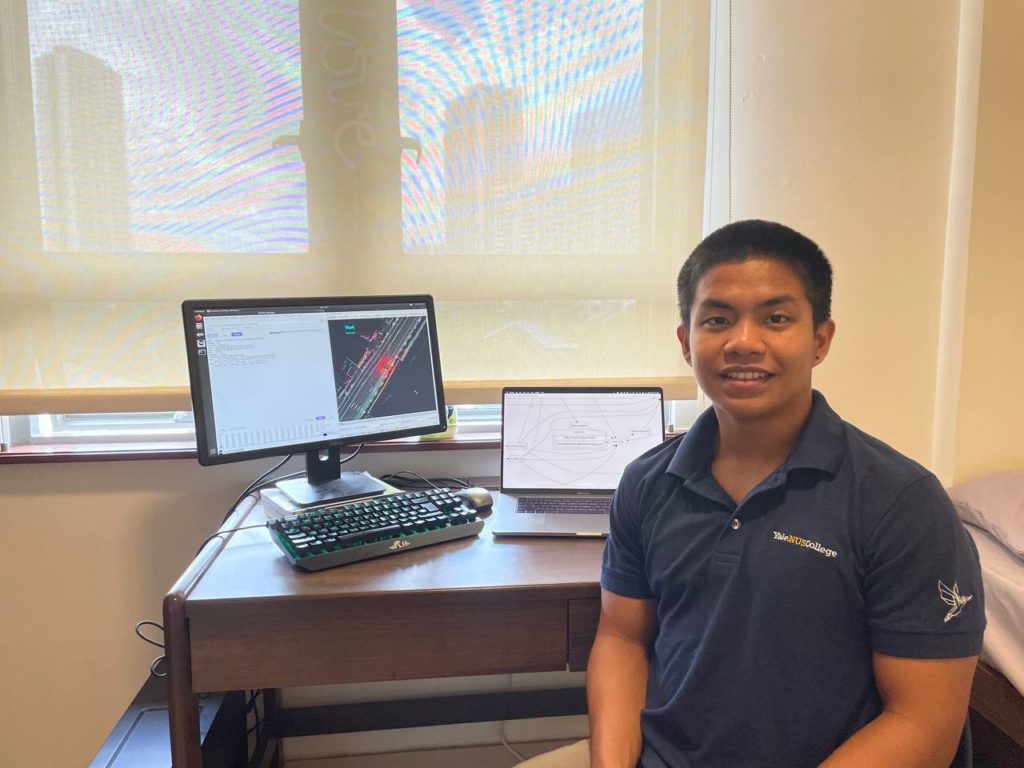 Jerricho’s project seeks to develop tools that will help optimise robotics software. Image provided by Jerricho.
Jerricho’s project seeks to develop tools that will help optimise robotics software. Image provided by Jerricho.
For Jerricho, the financial support offered by CIPE was critical in enabling him to pursue his interest in the project.
“CIPE provided me with the opportunity to take up the SRP, which is truly something that I am very grateful for. They supported me financially by funding my stay on campus over the semester break. This is very crucial, as going back home for me would not be conducive to working on the project,” he said.
Being a Mathematical, Computational and Statistical Sciences major, Jerricho is no stranger to programming languages. Nevertheless, beyond the programming languages already taught in the College’s curriculum, Jerricho had the opportunity to explore and pick up C++ and the Robot Operating System (ROS), which are crucial skill-sets as he pursues future robot-related projects.
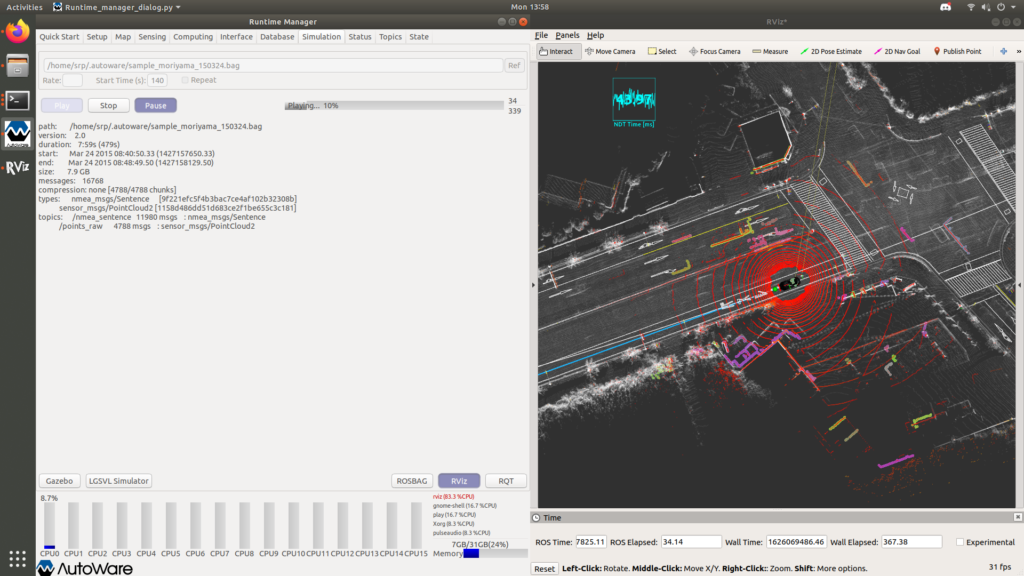 An example of Jerricho’s work on Autoware. Image provided by Jerricho.
An example of Jerricho’s work on Autoware. Image provided by Jerricho.
Looking back at how the SRP has impacted and shaped his academic and career plans, Jerricho added, “The SRP has developed my interest in software engineering. Working with Autoware’s source code very closely has built my appreciation for the effort and thinking that went into programming the software. I enjoy the process of analysing the codes, and I am considering taking up software engineering as a career.”

